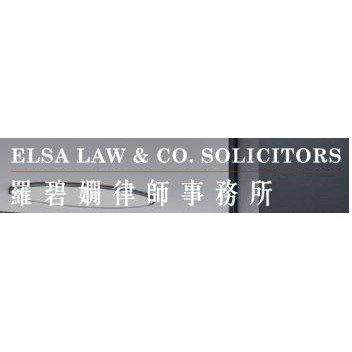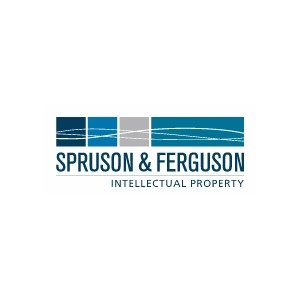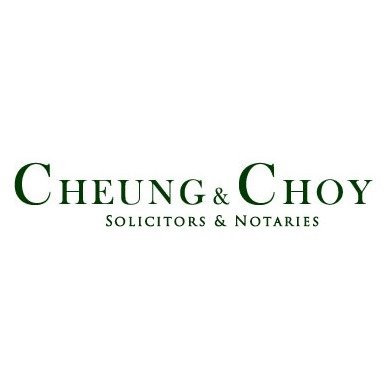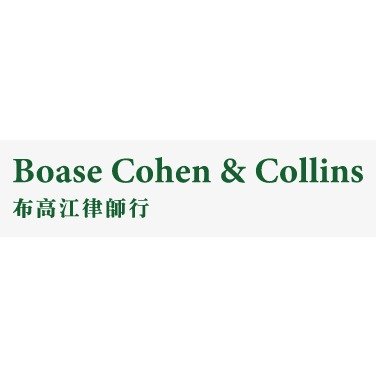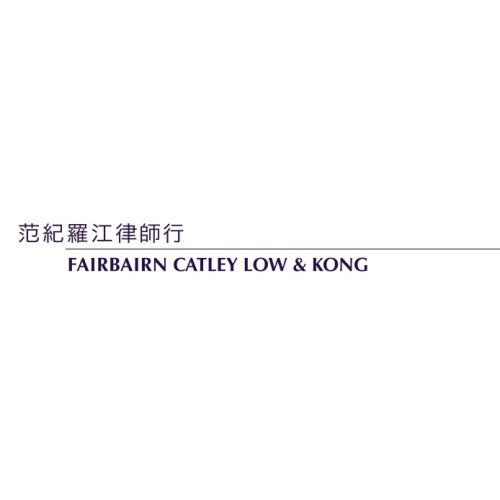Best Art & Cultural Property Law Lawyers in Wanchai
Share your needs with us, get contacted by law firms.
Free. Takes 2 min.
List of the best lawyers in Wanchai, Hong Kong
About Art & Cultural Property Law in Wanchai, Hong Kong
Art & Cultural Property Law in Wanchai, Hong Kong, encompasses legal issues related to the creation, ownership, and distribution of art and cultural heritage artifacts. This area of law involves protecting the rights of artists and ensuring the preservation and ethical handling of cultural properties. The legal framework addresses various concerns, including intellectual property rights, provenance, repatriation of artifacts, and legal measures against art theft and forgery. Given Hong Kong's vibrant art scene and its historical significance as a cultural crossroads, navigating these laws is crucial for individuals and organizations involved in the arts and cultural heritage sectors.
Why You May Need a Lawyer
There are several situations where legal assistance in Art & Cultural Property Law might be necessary. These include:
- Disputes over the ownership of art pieces or cultural artifacts.
- Negotiating contracts for the sale or loan of artwork.
- Resolving issues related to copyright infringement in artistic works.
- Guidance on compliance with national and international laws regarding the import/export of cultural properties.
- Assisting museums and galleries with legalities concerning acquisitions and exhibitions.
- Providing counsel on the ethical and legal repatriation of cultural artifacts.
- Addressing cases of art theft, forgery, or vandalism.
Local Laws Overview
Key aspects of local laws relevant to Art & Cultural Property Law in Wanchai, Hong Kong, include:
- Intellectual Property Ordinance: Protects artists' rights by outlining the regulations for copyrights, trademarks, and patents.
- Antiquities and Monuments Ordinance: Governs the protection and conservation of declared monuments and antiquities.
- Customs and Excise Ordinance: Covers the import and export regulations related to cultural property.
- Contract Law: Essential for artists and collectors when drafting agreements related to the sale, leasing, or loan of artworks.
- Sale of Goods Ordinance: Ensures the standards for contracts in art sales, addressing issues like title, description, and quality.
Frequently Asked Questions
What is considered cultural property under Hong Kong law?
Cultural property generally refers to objects of historical, artistic, or archaeological significance, including antiquities and works of art.
How can I protect my art from being copied or misused?
Artists can safeguard their work by registering copyrights, trademarks, or patents, wherever applicable, under the Intellectual Property Ordinance.
What steps should I take if I suspect art forgery?
Consult with a legal expert specializing in art law for a forensic analysis and consider legal action for restitution and damages.
Do I need a lawyer to draft contracts for art transactions?
While not mandatory, having a lawyer can ensure that the contracts are comprehensive and enforceable, protecting your interests.
Can cultural properties be taken out of Hong Kong?
The export of certain cultural artifacts is regulated and may require permits from local authorities to comply with the Customs and Excise Ordinance.
How do I handle a dispute over artwork ownership?
Seek legal advice to evaluate the provenance and any existing documentation. Mediation or court proceedings may be required to resolve the dispute.
What is provenance, and why is it important?
Provenance refers to the documented history of an object's ownership. It is crucial for establishing legal title and authenticity of the artwork.
Are there any ethical considerations in Art & Cultural Property Law?
Ethical considerations include issues related to the acquisition and display of cultural artifacts, ensuring that they are legally obtained and not looted or stolen.
What legal avenues are available for repatriating cultural heritage?
Legal mechanisms include international treaties, national restitution laws, and bilateral agreements between nations to return artifacts to their rightful origin.
What resources are available for art authentication in Hong Kong?
Several private and institutional resources offer art verification services, often collaborating with legal experts to mitigate fraud or ownership disputes.
Additional Resources
For further assistance in Art & Cultural Property Law in Wanchai, Hong Kong, consider the following resources:
- Intellectual Property Department of Hong Kong: Provides resources and services for protecting intellectual property.
- Hong Kong Bar Association: Offers directories for finding legal professionals specializing in art and cultural property law.
- Hong Kong Arts Development Council: Supports and advises artists and organizations regarding legal and professional matters.
- Museums and galleries in Hong Kong: Often have legal tools and experts available for consultation regarding art transactions.
Next Steps
If you require legal assistance in Art & Cultural Property Law, consider the following steps:
- Identify the specific legal issue or area you need assistance with.
- Research and contact a lawyer or law firm knowledgeable in Art & Cultural Property Law in Hong Kong.
- Gather all relevant documentation and information related to your situation.
- Schedule a consultation to discuss your case and potential legal options.
- Ensure you understand the cost implications and service terms before proceeding with legal assistance.
By following these steps, you can effectively navigate the complexities of Art & Cultural Property Law in Wanchai, Hong Kong.
Lawzana helps you find the best lawyers and law firms in Wanchai through a curated and pre-screened list of qualified legal professionals. Our platform offers rankings and detailed profiles of attorneys and law firms, allowing you to compare based on practice areas, including Art & Cultural Property Law, experience, and client feedback.
Each profile includes a description of the firm's areas of practice, client reviews, team members and partners, year of establishment, spoken languages, office locations, contact information, social media presence, and any published articles or resources. Most firms on our platform speak English and are experienced in both local and international legal matters.
Get a quote from top-rated law firms in Wanchai, Hong Kong — quickly, securely, and without unnecessary hassle.
Disclaimer:
The information provided on this page is for general informational purposes only and does not constitute legal advice. While we strive to ensure the accuracy and relevance of the content, legal information may change over time, and interpretations of the law can vary. You should always consult with a qualified legal professional for advice specific to your situation.
We disclaim all liability for actions taken or not taken based on the content of this page. If you believe any information is incorrect or outdated, please contact us, and we will review and update it where appropriate.






